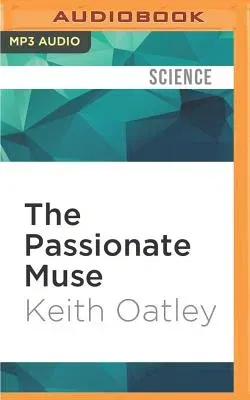The emotions a character feels--Hamlet's vengefulness when he realizes
his uncle has killed his father, Anna Karenina's despair when she feels
she can longer sustain her life, Marcel's joy when he tastes a piece of
madeleine cake--are vital aspects of the experience of fiction. As Keith
Oatley points out, it's not just the emotions of literary characters
such as these in which we are interested. If we didn't ourselves
experience emotions, we wouldn't go to the play, or watch the film, or
read the book.
In The Passionate Muse, Oatley, who is both a prize-winning novelist
and a distinguished research psychologist, offers a hybrid book that
alternates sections of an original short story, "One Another," with
chapters that illuminate the psychology of emotion and fiction. Oatley
not only provides insight into how people engage in stories, he also
illuminates the value of emotion and the importance of stories for our
psychological well-being. Indeed, he offers evidence that the more
fiction we read, the better is our understandings of others. Through
fiction, we come to know more about the emotions of others and
ourselves.

